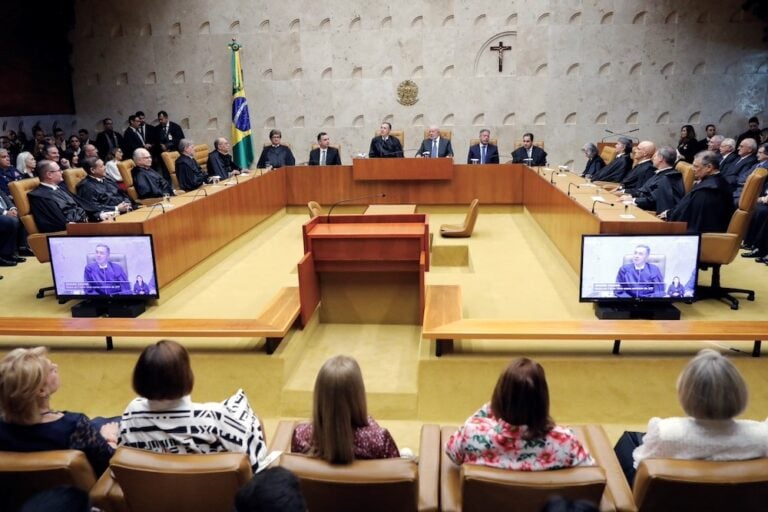The decision upholds an earlier ruling preventing the newspaper from publishing information about a corruption case.
(ABRAJI/IFEX) – On 10 December 2009, the Federal Supreme Court, the highest ranking court in Brazil, ruled against an appeal filed by the “O Estado de São Paulo” newspaper requesting the reversal of a lower court decision that prevents it from publishing information relating to a federal police investigation into the actions of businessman Fernando Sarney, who is the son of Senate President and former president of Brazil José Sarney.
The lower court decision, which the newspaper regards as an act of censorship, was in response to a request filed by Fernando Sarney and has already been in effect for 130 days. “O Estado de São Paulo” had published articles revealing the contents of telephone recordings obtained during the police investigation, known as Operação Faktor, with legal authorisation. The telephone calls exposed the hiring by the president of the Senate of relatives and political allies, in what would later become a nepotism scandal. Fernando Sarney’s lawyers accused “O Estado de São Paulo” of engaging in criminal activity with the publication of the contents of the telephone calls and alleged that newspaper had harmed the honour of the Sarney family. If the newspaper issues any further information about the case it will face a fine of R$150,000 (approx. US$150,000) per article published.
In the appeal presented by “O Estado de São Paulo”, the newspaper’s lawyers argued that the censorship goes against a previous court decision that invalidated the press law (Lei de Imprensa) which was promulgated during the Brazilian dictatorship. The previous ruling, which was issued in April, also conceded full rights to freedom of expression, with explicit references against censorship imposed by the courts.
The majority of the Supreme Court justices, however, argued that the decision against the newspaper was based on the Constitution and legislation with respect to phone tapping, not the Press Law.
ABRAJI condemned the Supreme Court’s decision. The organisation is concerned over its implications for censorship and press freedom.
In a statement issued in November, the Inter American Press Association noted its concern about the censorship of “O Estado de São Paulo”, stressing that there were already six cases in which judges forbade newspapers from publishing information about specific topics in Brazil.


